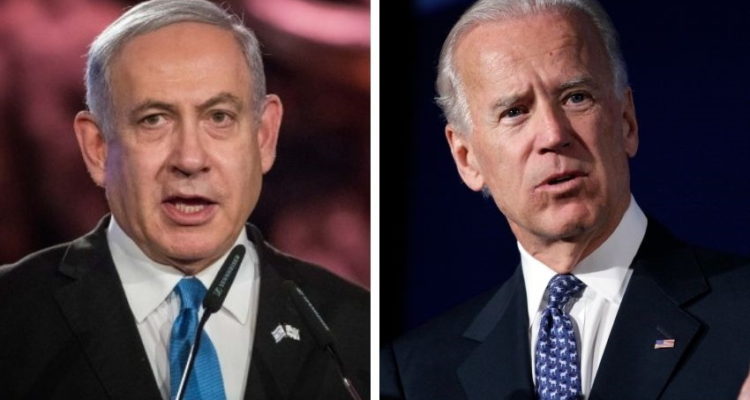Differing with Israel, the Biden administration still believes a diplomatic solution is the best way to de-escalate from possibility of regional war.
By Batya Jerenberg, World Israel News
The Biden administration has quietly opposed Israel’s recent attacks on Hezbollah, despite not airing any sharp public criticism, Politico reported Wednesday.
American officials had warned their Israeli counterparts before Israel’s massive aerial assault on Hezbollah targets began Saturday would put a halt to diplomatic moves that they still believed was the best way to de-escalate a situation in which Hezbollah has launched some 9,000 missiles, rockets and UAVs at Israeli communities over the last year and some 60,000 Israelis are still evacuated from their border homes as a result.
The fear, as expressed by President Joe Biden in his speech Tuesday at the opening of the United Nations General Assembly, is that the military escalation could quickly lead to a region-wide conflict, something the U.S. has no desire for.
“Full-scale war is not in anyone’s interest,” Biden said in his speech. “The situation has escalated…. A solution is still possible. In fact, it remains the only path to lasting security and to allow the residents of both countries to return to their homes.”
According to the report, Jerusalem is not against a diplomatic solution to the crisis, having agreed for months to limit its retaliations for the indiscriminate aerial assaults on its sovereignty in order to give negotiations a chance.
The decision was finally made to differ with the Americans as to how to achieve a resolution.
The report said that during his trip to Jerusalem last week, the Israelis told U.S. Special Envoy Amos Hochstein that “Hezbollah had shown no signs of wanting to engage in serious diplomatic talks and that Israel was set to ramp up the pressure on the group.”
Politico also cited an Israeli official who said that in their discussions on the issue, the Biden administration was told that now was the time for the Jewish state to “escalate [in order] to de-escalate.”
The report said that American opinions are divided on the efficacy of the military pressure, with several defense and intelligence officials saying they don’t think it will drive Hezbollah to the negotiating table, but rather impel the Iranian terror proxy to up the ante.
Despite the IDF recently saying it has been successful in destroying tens of thousands of Hezbollah rockets and much of its launch capabilities, the group still has many tens of thousands of projectiles in its arsenal, although its supply of the exponentially more dangerous precision-guided and cruise missiles is much more limited.
Hezbollah also has the proven capability of carrying out terror attacks against Israeli and American targets around the world.
In what may be a sign of hope that regional war is not yet at hand, Iran has signaled that it doesn’t want to engage Israel militarily right now.
According to an Axios report, Tehran recently rejected a plea from its chief proxy to attack Israel directly, telling Hezbollah officials that “the timing isn’t right.”





